I gave birth in 2023 in South Korea and spent 2 weeks at a Sanhujoriwon (산후조리원 - commonly known as a joriwon), a Korean postpartum care centre. I wrote about my experience at the time and wanted to share it to help other foreign women in South Korea who are curious about what it is like. My experience left me feeling major culture shock and a lot of guilt as I faced several challenges during my stay.
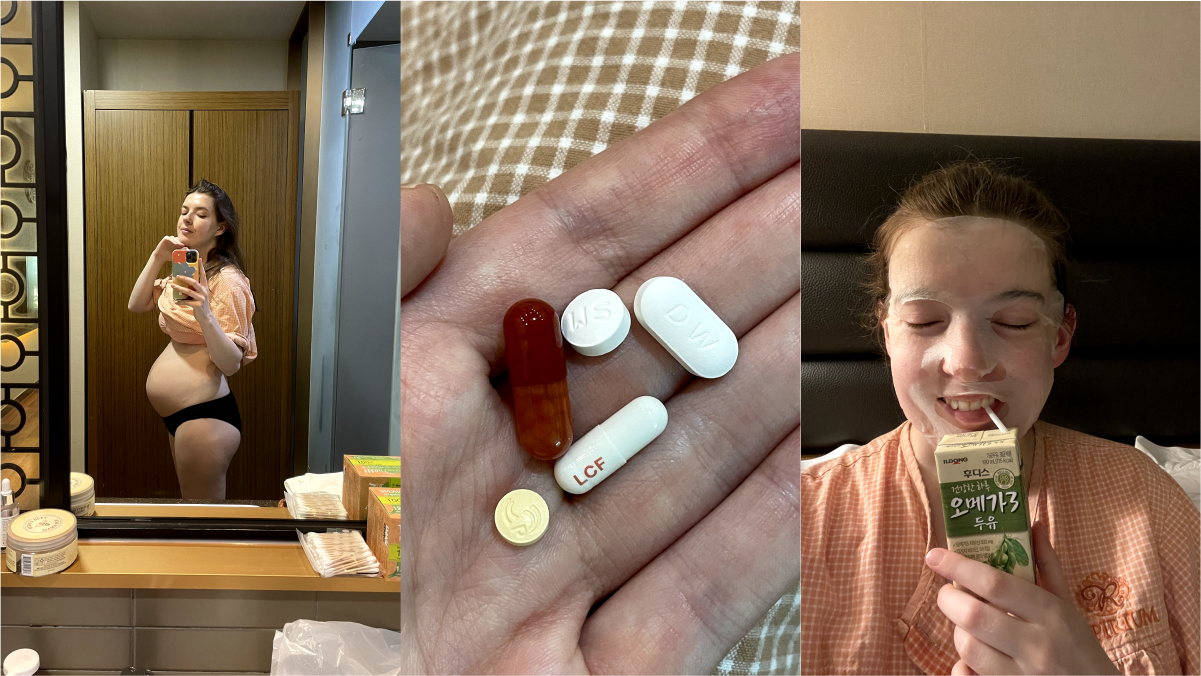
A Joriwon is a Korean postpartum care facility where women stay to recover from giving birth. Joriwons provide 24/7 care for babies in a nursery buzzing with expert staff who whisk their way around nappy changes, baths and bottle feeds like they’re conducting some kind of tiny baby orchestra.
While the baby whisperers work their magic, mothers can relax and recover in a hotel-style room with meals delivered to their door, yoga sessions, massages, visits from breastfeeding experts, and endless supplies of paraffin wax to dip their achy hands into.
The Joriwon I went to cost around $4,600* AUD for a 2-week stay. The high cost of my stay factored into a lot of the guilt that I felt for wanting to leave.

In Korea, public postpartum centres are available in some regions as an alternative to private Joriwons. The Songpa Maternity Care Center in Seoul costs 1.9 million won for 2 weeks, more than half the cost of the average Joriwon stay (4.19 million won).
Support is also available for helpers who come and stay at your house (Doumis) during your postpartum period, as well as stipends that can be put toward your Joriwon stay upon giving birth. The Korean government has many incentives in place for new families to address the nation’s low birth rate, which increased to 0.75 in 2024, up from 0.72 the previous year (for reference, the global fertility rate was 2.2 births per woman in 2024).
*Please note that the services and facilities will differ at each Joriwon ~
That’s exactly how I felt when I made the decision to stay! My experience left me feeling quite guilty because I just wanted to go home despite having all the help I could ever need, right at my (very sore) fingertips.
It has taken me 2+ years to post this because of this guilt. In the Joriwon Diaries, I go into depth about all of the things I struggled with as a foreigner at a Korean postpartum centre, including:
I wrote the Joriwon Diaries while I was in the thick of my experience. Because my postpartum experience did not meet my expectations, I felt a strange sense of grief and regret. Writing this was a way for me to process my experience and hopefully share it with others.
I went in with the expectation that I would be able to do things on my own terms and in my own way — a way that I had come to understand was the right way after years of reading books, listening to podcasts and a lifetime of knowledge of how children are raised in my own culture.
This turned out to be an important lesson for me as a new mum in a foreign country. I’ve since had to compromise on many aspects of raising my child due to cultural differences. But don't get me wrong, I don’t see this as a bad thing. Living in a foreign country, things are not necessarily better or worse; they are just different. I have the advantage of being able to pick and choose different aspects of my own culture and my adopted culture. I am very grateful for my Joriwon experience and the warm care that I received.
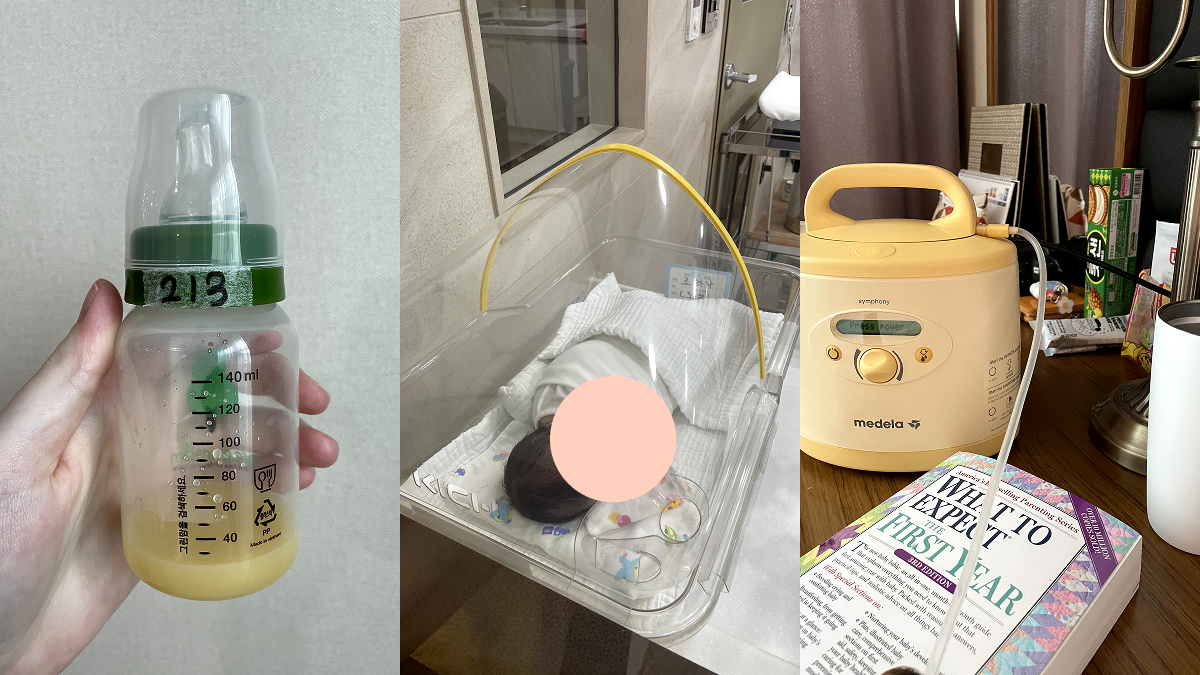
The biggest difficulty I faced when I was at the Joriwon was navigating breastfeeding vs. formula feeding. Before having a baby, I had the expectation that I would be breastfeeding all the time and that would be my baby’s main source of food for the first six months.
After giving birth in Korea, I felt like I was forced to formula feed my baby. There were no discussions. In some instances, I was worried they were overfeeding our baby (that was probably hormones though).
Every resource that I read before giving birth told me that babies don’t need a lot of milk in their first days. The colostrum you produce is enough for their tiny bellies. The more you breastfeed, the more milk you make. Supply and demand etc. These are probably things you might already know.

At the hospital, the nurses brought our baby to our room a few times a day to breastfeed (we didn’t stay with him in our room). They showed me how to position the baby, and I am lucky that he latched well right away.
However, they also fed him formula in the nursery, and I was not able to be with him all the time. At first, it didn’t worry me because I was focusing on my recovery. I assumed the staff would want me to be with the baby as much as possible, but that wasn’t the case. Maybe it is because I had very low iron levels, and didn’t want me to exert myself. In any case, I thought that I would be able to make up for my lack of feeding when I went into the Joriwon.
Please note that overall, my hospital experience was amazing. The staff were extremely attentive and monitored my iron levels and our baby’s health with great care. If you are interested, I uploaded a birth story video on my YouTube channel.
When we arrived at the Joriwon, they took our baby from us at the door. I could see the nurses formula feeding him right away. I didn’t really mind because I was just happy that my baby was healthy and eating enough food. But I thought it was strange that nobody asked me if that was okay.
The staff at the Joriwon told me that I didn’t have enough milk to breastfeed my baby and that they would tell me once I could start feeding him. I had to wait almost 24 hours before a woman came to my room and told me I could start expressing milk with the pump they provided. They told me to pump every 4 hours for 30 minutes.
The purpose of staying in a Joriwon is so that the mother can recover from birth. Pumping milk is the norm so that the nurses can feed your baby in the nursery while the mother is resting. I knew this already, but I thought that I would still have the option to exclusively breastfeed if I wanted.
I told the staff that I wanted to breastfeed my baby every time he was hungry. They very kindly started bringing him to my room at feeding times. If I didn’t return the baby to the nursery after feeding him, they would call my room and tell me to bring him back so they could give him formula. I was so confused, but I did it anyway because I was a new mum and I doubted myself. I assumed they knew better despite the hours I spent researching and preparing for motherhood.
I couldn’t always feed my baby myself because there was always something going on. The daily schedule at the Joriwon meant that I couldn’t be with him in my room all day. It was hard to navigate my baby’s feeding times and the various activities I needed to do (yoga, eating meals, massage appointments etc. — I know, sounds really difficult, right?).
I was always out of sync with my son and ended up pumping quickly, only to get a call from the staff asking if I was ready to feed him. I felt so frustrated by this. It was also really hard to advocate for myself and my needs in another language.
Overall, my breastfeeding journey with my newborn was very upsetting to me. I felt guilty because my baby latched really well and I produced a lot of milk from the get-go. It felt like a waste. I still get emotional about this and find myself tearing up while editing this over 2 years later.
I spent my days at the Joriwon sitting in my room crying. This was definitely because of hormones, but it was mostly because I was apart from my son and felt like I had abandoned him. After leaving the Joriwon, I worked hard to exclusively breastfeed my baby and make up for the disruptions to my milk supply.
This left me with a lot of separation anxiety. When I first got back home after staying in the Joriwon, I never wanted to leave my house, and I refused to formula feed our baby. I barely went outside without him. If I did manage to get outside, it was while he was sleeping, but I was thinking about him and eager to run back home.
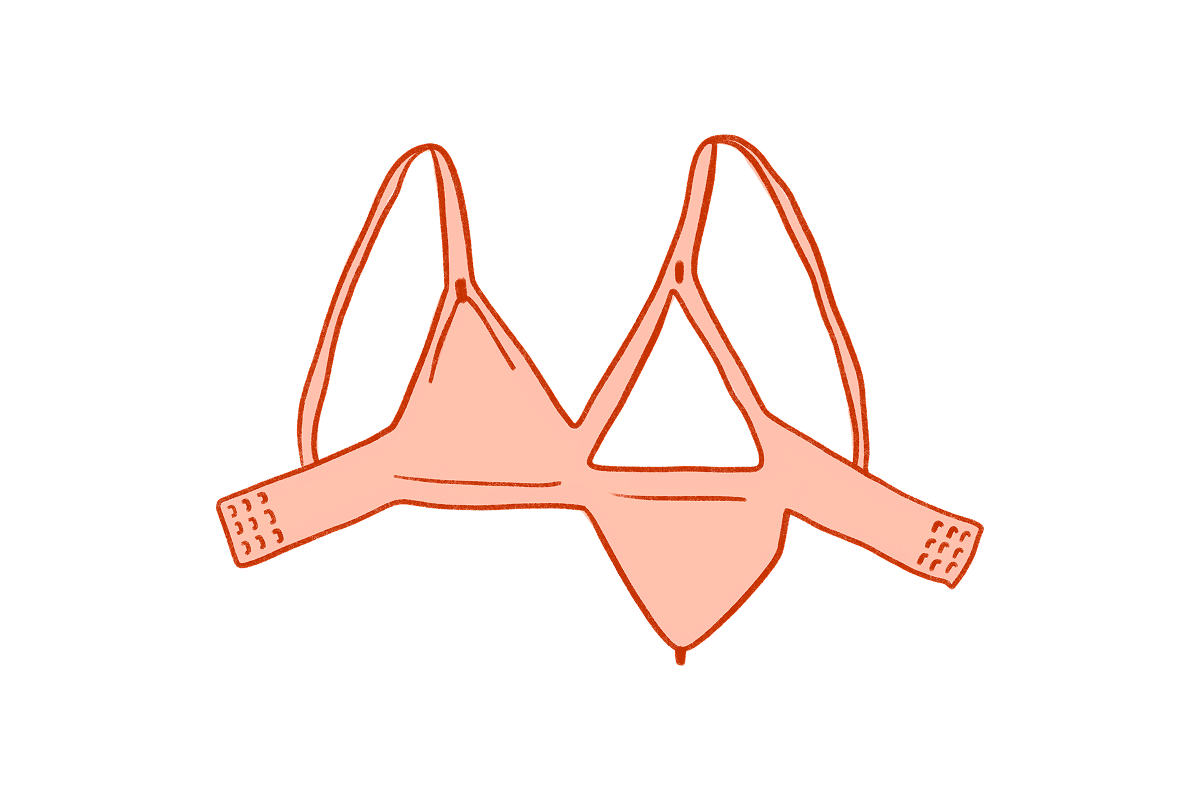
I wasn’t expecting to be so emotional about breastfeeding. Not being able to feed my baby whenever he needed me in the very beginning sparked something in my brain that made me a bit nuts.
On top of this, I felt like a tiny ant human who couldn’t communicate what I wanted. I couldn’t fully convey my needs in Korean because it was mostly a cultural disconnect. I felt like my desires to be with my baby and breastfeed him were alien.
From my understanding, formula was used when there was an issue with latching and milk supply, or when mothers simply don't want to breastfeed (which is a completely valid decision). Or if the baby had a bad reaction to their mother's milk. This is why I felt it was odd that formula was supplied right away without any discussion or assessment.
Just like a lot of services in South Korea, Joriwons run like clockwork with convenience and fast pace essential to operations. I felt that my unusual request to breastfeed my son at every feed was an inconvenience to their work, so I didn’t push too hard.
I feel proud of myself for navigating this in another language and culture. I was definitely optimistic going into the experience, but I was grateful for the staff for being so kind and understanding. I also felt very fortunate to have access to a breastfeeding professional and a lot of advice from the nurses at the centre.
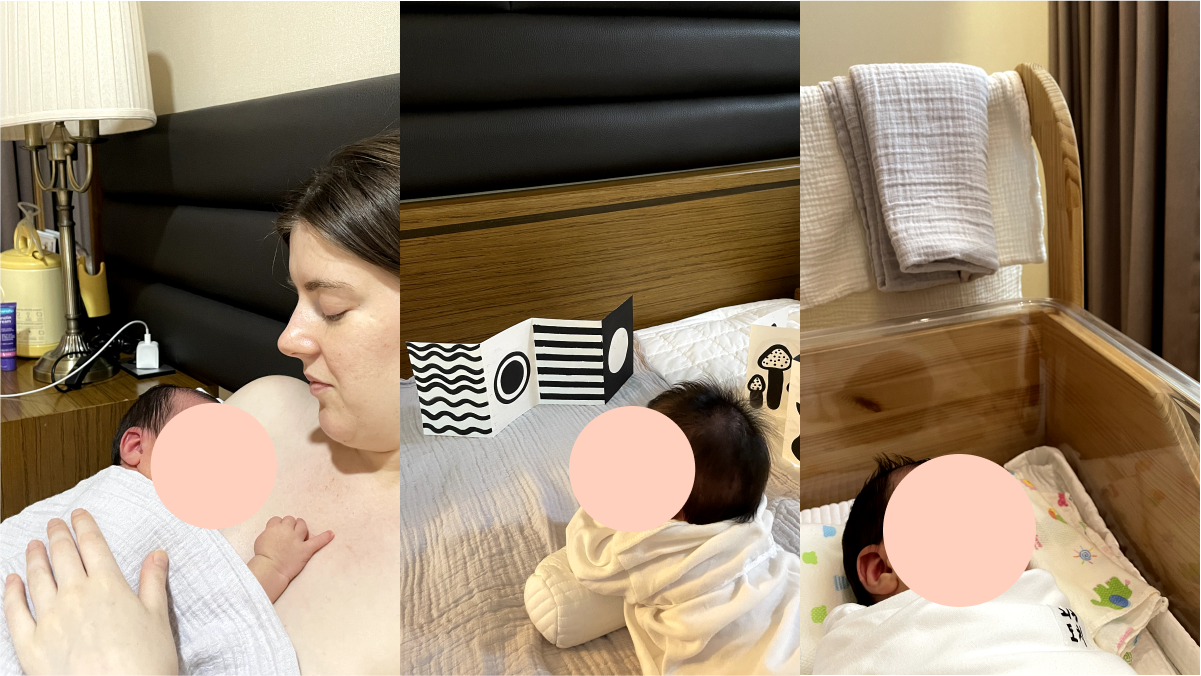
There were two blocks of time a day where the baby had to be in our room with us. This was so that the nursery could be cleaned. I made the most of our time together, but felt sad that I was rarely there when he woke up from his naps. He couldn’t hear my voice all the time. I just wanted him near me 24/7. I would try to keep him in my room as long as possible but I would get a phone call telling me to bring him back to the nursery.
Through my research, I was also aware of the value of doing skin to skin with your baby. I’ve read that you should do it as much as possible in the baby’s first weeks. I did skin to skin when he was first born at the hospital, and continued this at the Joriwon. One of the staff members in the Joriwon was worried that I took off my baby’s clothes. She said he would catch a cold. I cried.
I kept doing skin to skin anyway because my baby loved it and I loved it too. I kept doing it after leaving the Joriwon. I also showed my husband how to do it and he loved it. Koreans worry about babies catching colds. I was worried that my baby would miss out on crucial bonding. Agree to disagree.

At this point, I was starting to feel like a conspiracy theorist explaining all of the things I read about to my husband about newborns. I read that tummy time was something babies can do from birth, but there was no encouragement at the Joriwon to do this. I took my own initiative to lie my son on his tummy several times a day. I also placed high-contrast flash cards in front of him to get his brain excited.
It made me feel strong to follow my gut and do the things I couldn't wait to do with my baby now that he was finally here.
As a new mum, one of the benefits of staying somewhere with 24-hour help is that you can build up your confidence with things like diaper changes, washing the baby, making / washing bottles, swaddling etc.I felt like this was really hard to learn at the Joriwon becasue the staff insisted on doing everything. They would dress the babies, wash them, feed them and prepare the bottles.
It made me feel useless. It made me feel like I didn’t know how to take care of my own child. On my last day at the Joriwon, the manager sat me down in her office and went through 2 x A4 pages of bullet points explaining baby care 101 - all in Korean. I didn't find this very helpful but was grateful for their time and patience.
They also showed us how to bathe our baby right before we left. We filmed a video through a glass window of a staff member showing us how to bathe him.
There was no opportunity to try for ourselves or make mistakes in a safe environment. It seems like a wasted opportunity in my opinion. I imagined baby classes with other mums, practising things with our babies, doing tummy time classes or even learning CPR or about SIDS prevention. I’m not sure if covid restrictions played a role in this or my expectations were too western-centric.
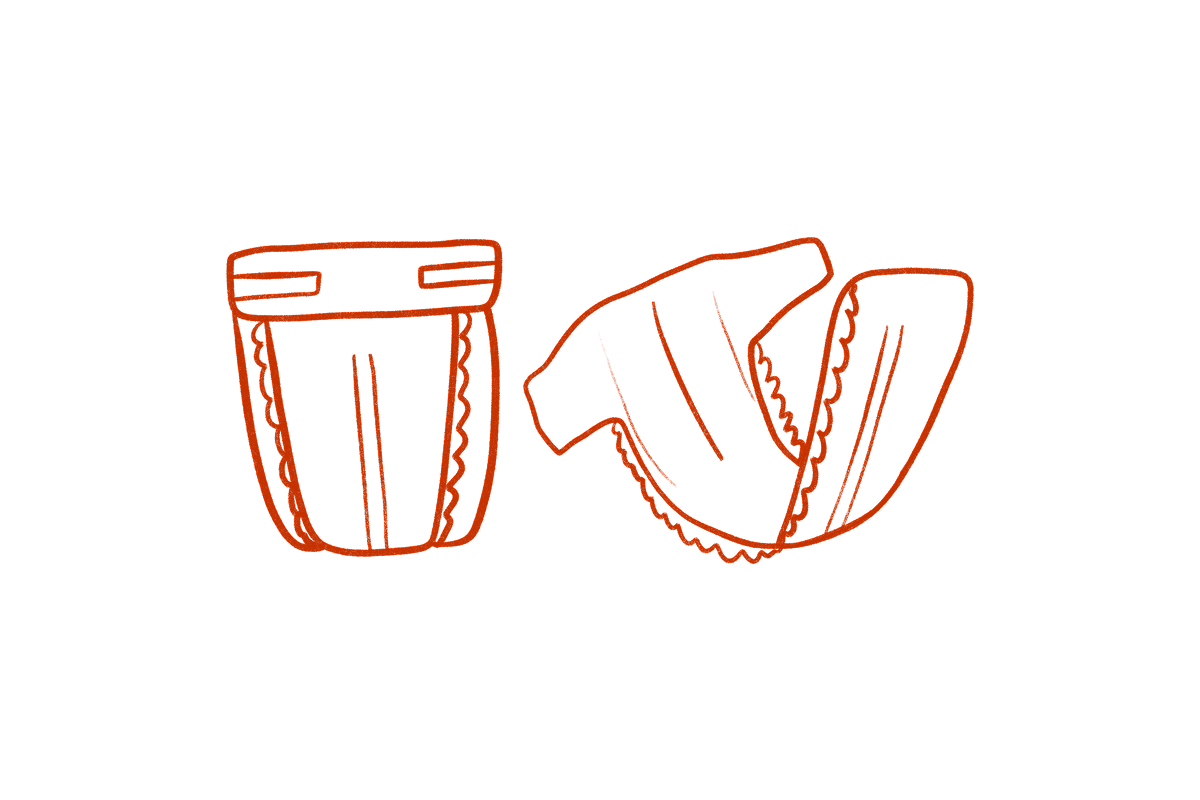
While I couldn’t wait to leave the Joriwon, I was also feeling very well-rested and recovered. The Joriwon schedule felt quite rigid to me, and I was desperate to get outside into the real world (I wasn't allowed to go outside excpet for hospital visits).
I couldn’t wait to put our baby in his own clothes and his own bed and let him wriggle around and eat whenever he wanted and breastfeed at every meal and wake up in the middle of the night and jump at his every cry. All of the things I missed out on for the first 2 weeks of his life.
The structure of our days at the Joriwon and consistent routine definitely set us up for success at home.
I did. I tried. I was a nuisance compared to the other mums. I wanted to be with my baby all the time. I set my alarm for 2 AM, 4 AM and 6 AM and pumped my milk for him. They didn’t recommend I do that, they told me to rest. I didn’t bring him back when they asked for him. I did my best to speak up for what I wanted in Korean. The Joriwon staff admired my dedication and were quite surprised by my desire to be with him all the time.
Yes! I did! But I researched with rose-tinted expectations and my own understanding of how things should be. I watched YouTube videos of other foreign mums, one of which suggested waking up in the middle of the night to pump. I also made sure to ask the staff while we were signing the contract if I could be with the baby whenever I wanted. I think I was too optimistic about it, to be honest.
No. I wouldn’t go back if I had a second baby. I would hire a “Sanhu Doumi” (산후 도우미) instead. A Doumi will come to your house in the morning, clean, cook your meals, and help out with your baby. The Korean government provides assistance with this. However, I would be hesitant because I know the Doumi would probably tell me the baby will catch a cold or that I am doing everything wrong.
I would consider going back just to eat the food...
The food. Thank the Korean gods for the food. The most delicious food ever. Endless seaweed soup, amazing fish, salads with every meal, delicious side dishes ~ it was all yum yum. I recovered so well because of this food. Scroll down to the end of the post to see my food pics.
I don’t. I was open to supplementing with formula but I was thinking of it being a last resort not an every meal ~ situation. I don’t know why women have this pressure to breastfeed or where it comes from. But if I’m honest, I feel guilty that my baby was being fed formula when I had a baby with a great latch and a good milk supply.
There is no perfect way to raise a newborn. I’ve learned to accept that I live in Korea and should expect to do things differently. I learned to just trust my instincts and let go of things that aren’t that important. I’m just so happy to have a healthy and smiley baby.
To find a silver lining in my Joriwon cloud, I will say that the consistent, healthy meals I was served supported a very speedy recovery for me. If I were at home in those first two weeks, we probably would have been ordering every meal. I was able to eat fresh salads, a lot of fish and seaweed soup, and really delicious rice porridge and smoothies. If I could have hung out with my baby all day and night and eaten the food, I would have been very happy.
The walls in the Joriwon were very thin, and if my baby were in the room with me all night, the other mothers would have had a rough sleep.

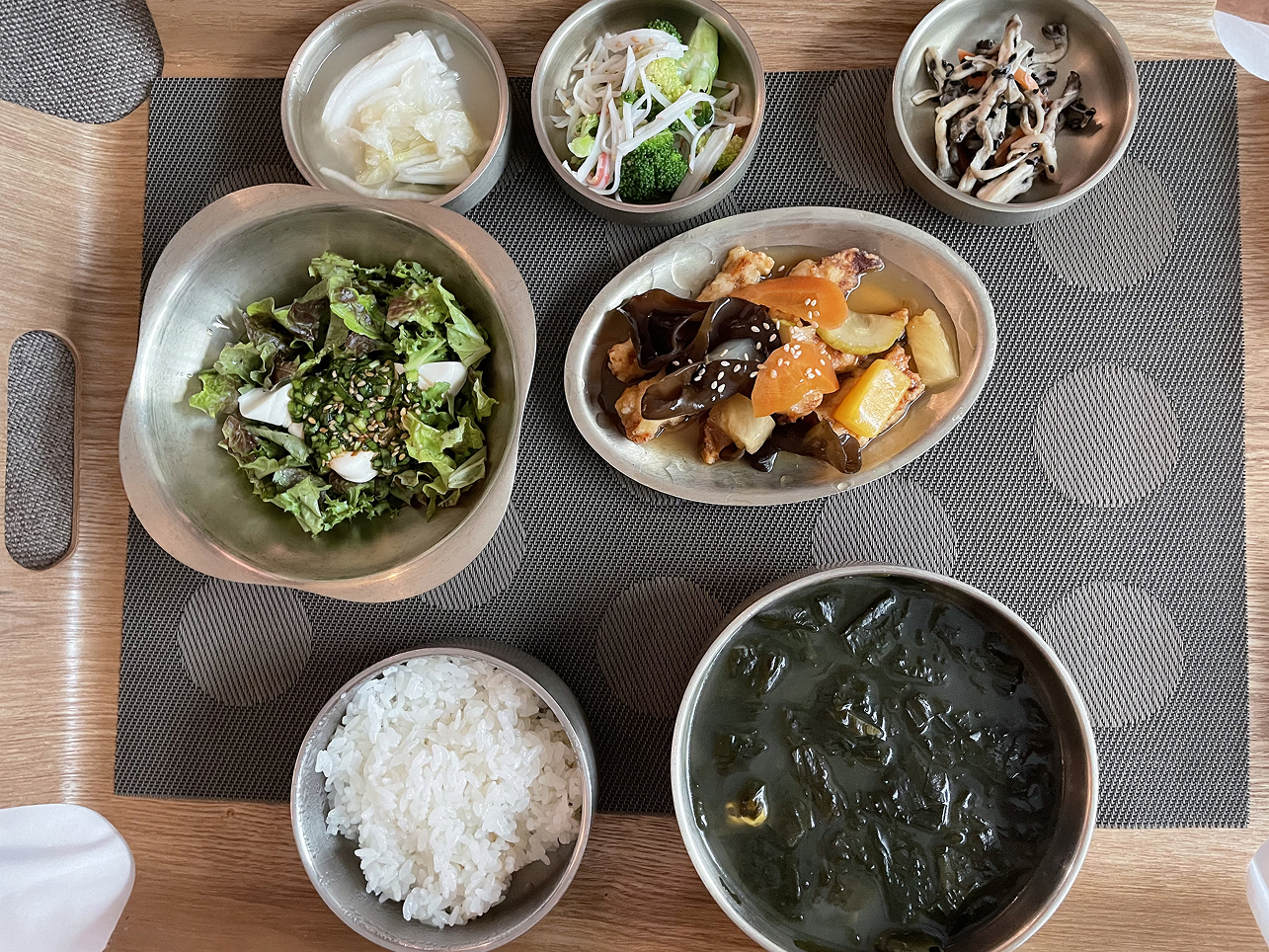
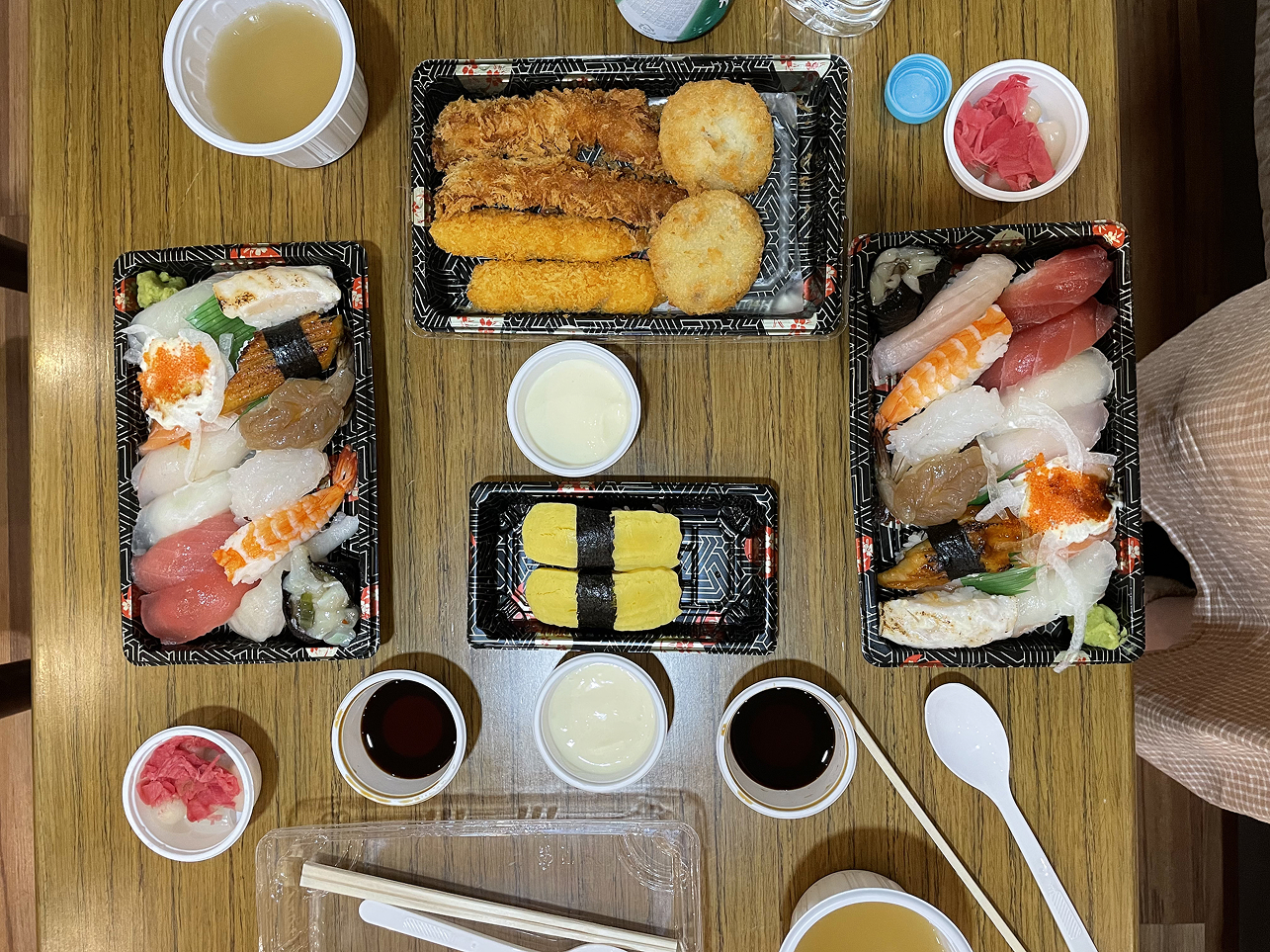


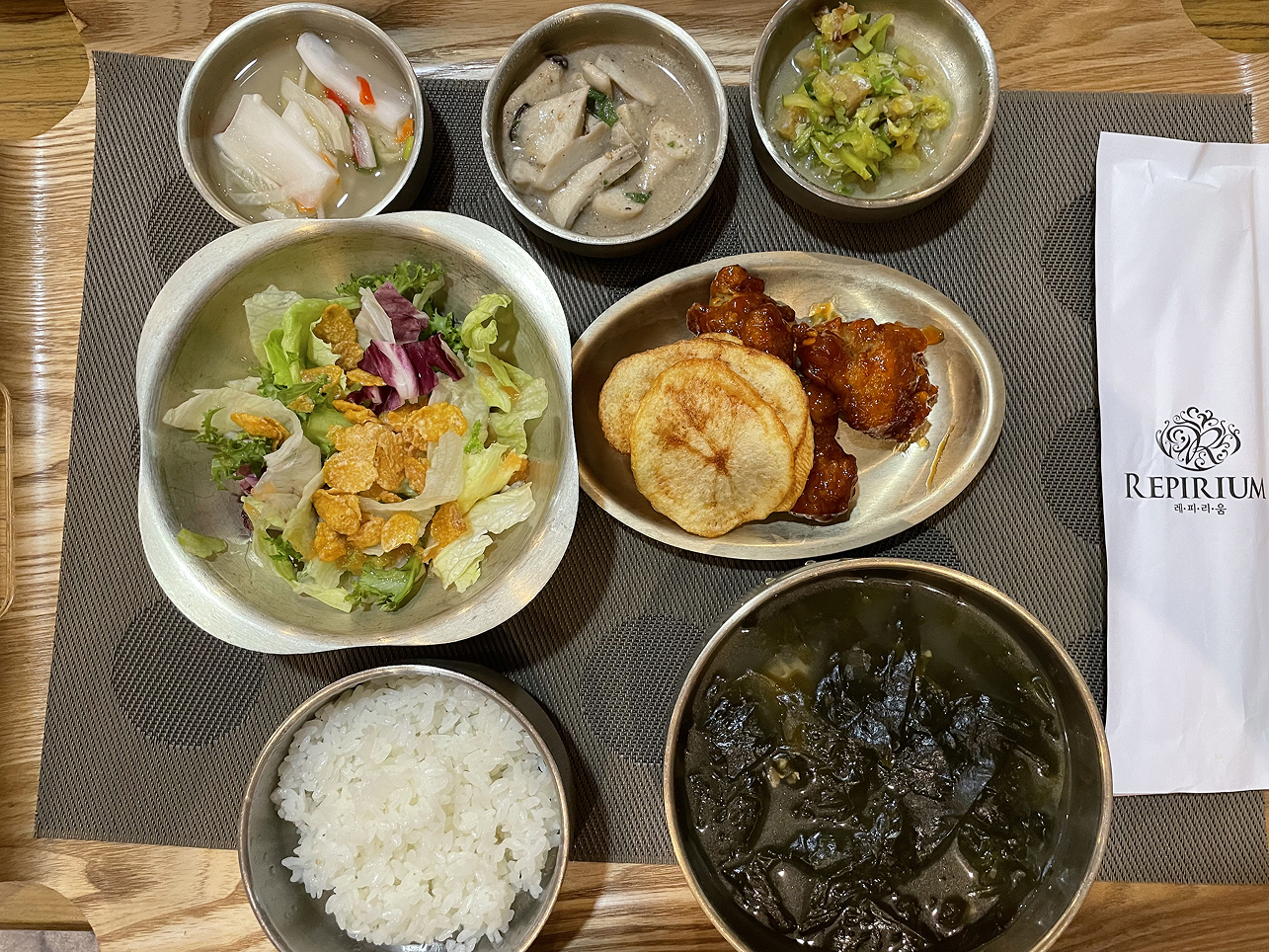


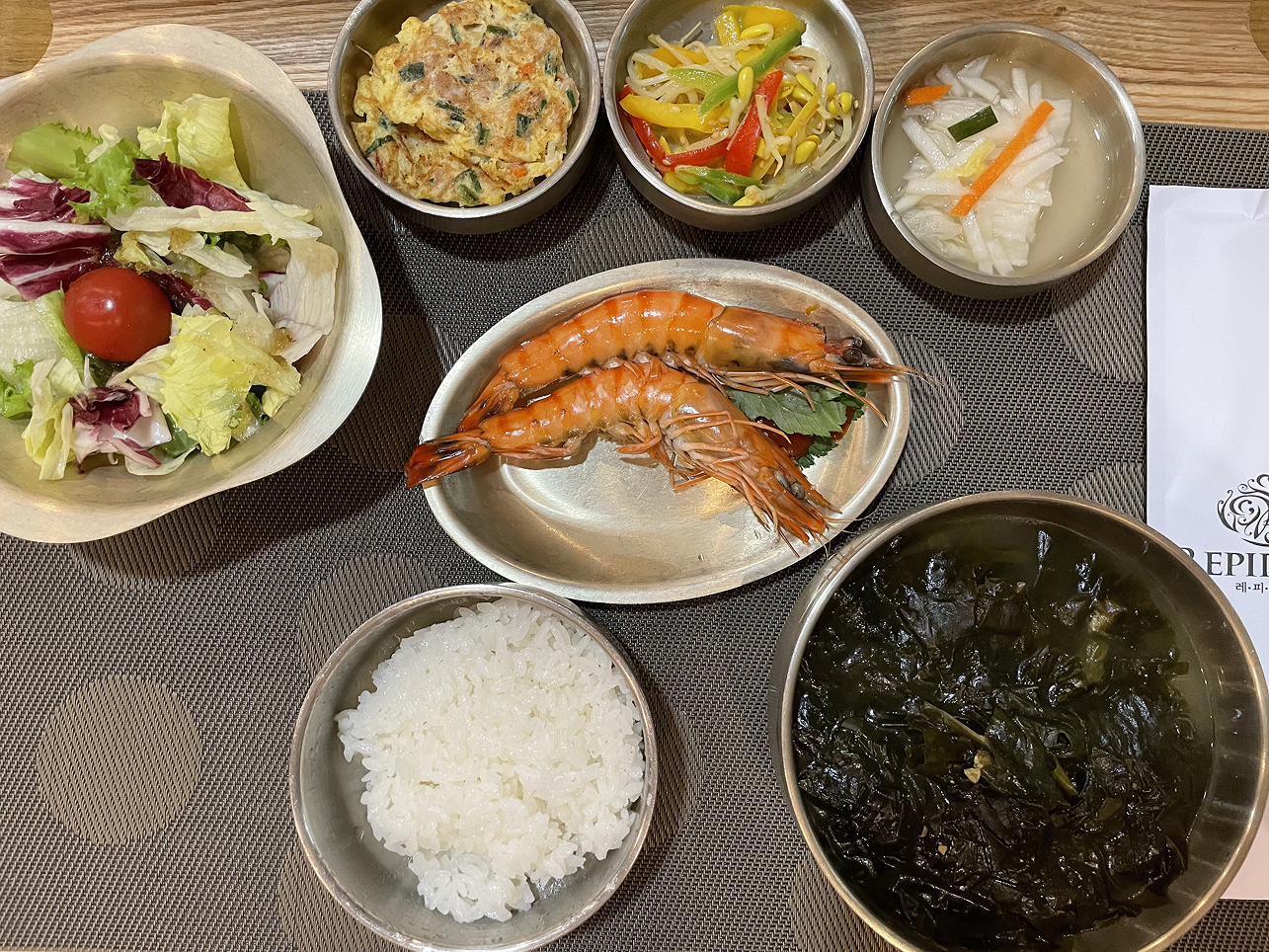

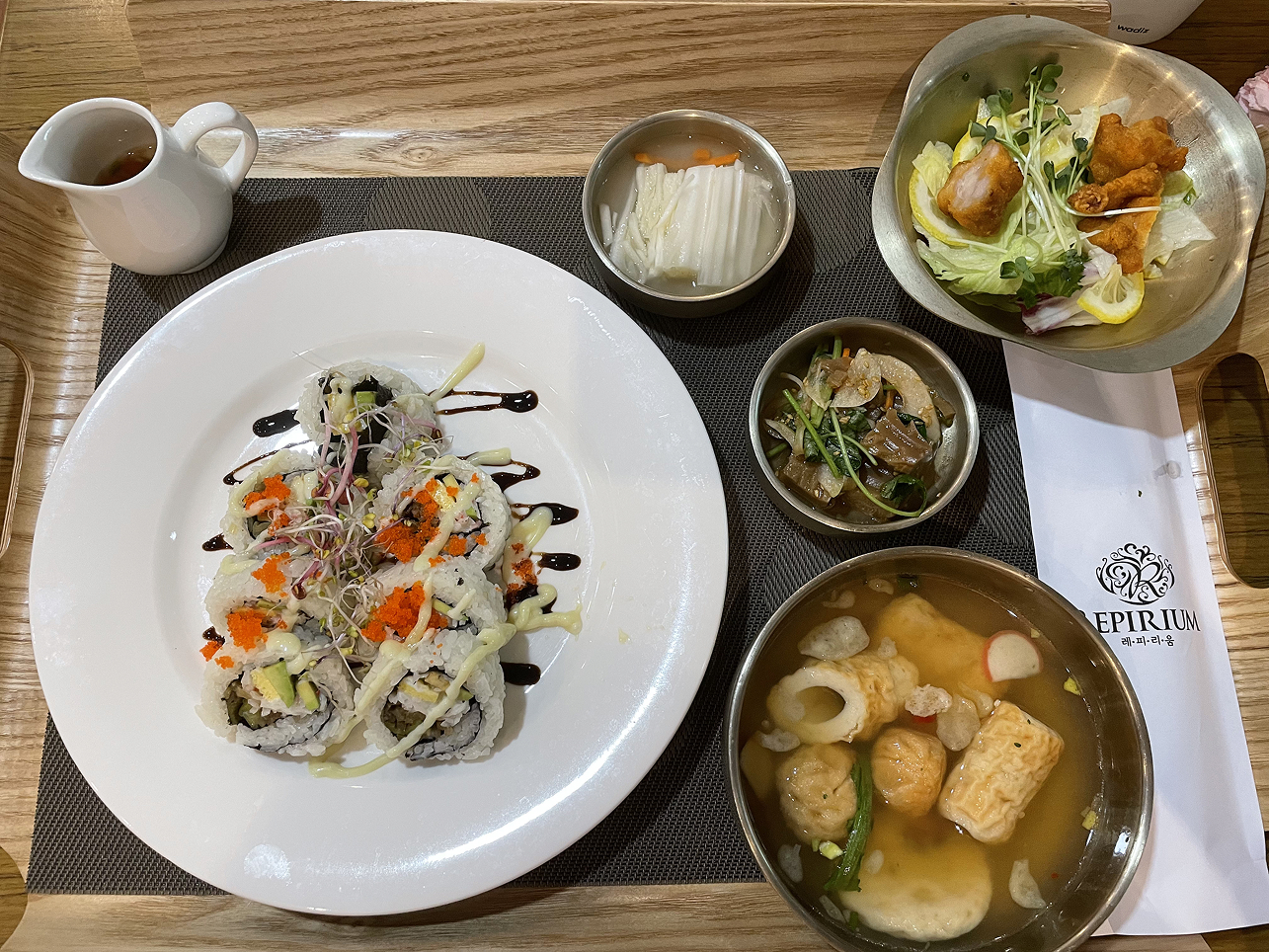
Thank you for reading the Joriwon Diaries. I hope it was helpful for you. Feel free to reach out to me on Instagram if you have any other questions or feedback about this post!
